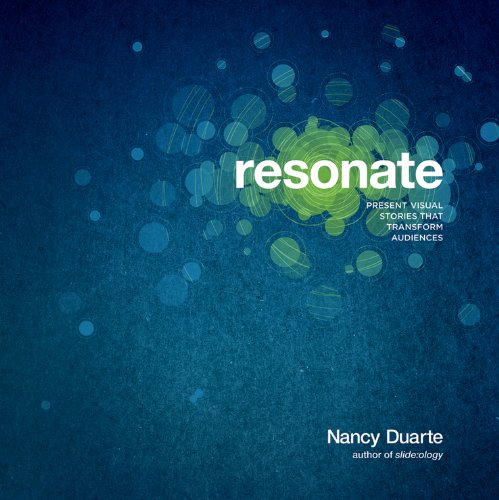As narrative coaches we’re hot on presentation skills. How are yours? Are you struggling to make impactful presentations? If so you need some simple, powerful advice about how to present better. Here’s some short insights for you.
- Set your objectives – Pin down why you are making the presentation. What do you want your audience to understand, learn or do? Once you know that, you can work out how to create a story that meets your objectives.
- Conceptualise and frame your story – If the things you want to say aren’t worth talking about in the first place, no amount of presentation skills will help! That’s your first lesson. In a scenario where preparation is everything, creating a concept then framing the way you put the story across is the most important preparatory work of all. And the most important word in the last sentence is ‘story’…
- Blend facts with narrative and story – Humans have sat around roaring fires after dark for millions of years, weaving complex stories to help us explain the mysteries that surround us. Human storytelling runs so deep it’s almost genetic. That’s why we love books, TV, movies, plays, poems, radio shows, blogs, songs and podcasts so much – they’re all effective ways to consume stories. Think of every presentation as a story, a journey designed to ultimately help people see the world differently.
- Create a sensible structure – Some of the best presentations kick off by explaining a problem, then describing the journey the presenter has taken to reach the solution. When done really well this can create an ‘aha’ moment, when your audience all ‘get’ your message at the same time and their perspective suddenly shifts. You can almost see it happening, and it’s exciting. Once you’ve managed it, you’ll probably know you can do it and want to do it again!
- Don’t get in your own way! – Presenting isn’t about revealing how capable and starring you can be. Your audience does not need you to be in an overly self-conscious or promoting mode. Think of yourself as the storyteller. You’re a conduit for information, your slides should be explanatory or illustrative. Being engaging and tuning into your audience is a skill and they are where the main focus of your attention needs to be aimed.
- Keep it neat – Stick to your core subject and don’t wander too far off piste. It never works well when you try to cover too much ground. Ironically, when you try to say too much you end up without enough time to include all the necessary details. Limit your presentation to the things that can be explained properly in the time you’ve got.
- Use specific examples – Using actual examples to illustrate your story can act like an excellent short cut, taking you straight to the point with less need for lengthy explanation.
- Never assume – Assuming people know more than they do, or are more interested than they actually are, means you’ll lose their interest more or less instantly. The same goes for jargon – it’s always best to be plain. Truly engaging speakers set out the lay of the land fast, introducing the subject, letting you know why they care, and convincing the audience to care as well. Once you’ve done that, and done it well, you’re en route to success.
- Don’t over-explain – Another way to lose people’s attention is to over-explain or stay with a subject longer than you need to. The people you’re presenting to are as intelligent as you. They’ll be able to work out plenty of things for themselves, and draw their own conclusions.
- Get the delivery right – Will you stand there and read from a script, use an electronic prompter, or learn it off by heart and present without support? You need to know in advance, and knowing exactly what you’re going to do – and how – will boost your confidence. When you’ve got your talk off pat and can reel it off verbatim, without a script or prompt, you know you know it in your bones. You just need to give yourself all the time you need beforehand. This is to make sure you are as familiar with your content as you need to be. Don’t short change yourself at this stage.
- Rehearse and polish – When you rehearse thoroughly it gives you more confidence. You’ll spot parts where you lose the plot, need to add more, slow down or speed up too much, and you’ll see where there’s too much information. Tip – a list of bullets should help you memorise your presentation logically.
- Watch your tone of voice – There’s no need to use a different voice, or to try and sound a certain way. It only comes across as false. As long as you speak normally, the way you usually do, it won’t sound forced or weird. Aim for conversational and you won’t go far wrong, as long as you speak clearly, slow down a little and vary your tone to match the nature of your slides.
- Get coaching for a better stage presence – Bear in mind stage presence is a skill you can be coached in. Something as seemingly simple as coaching a person in how to stay still on stage at the right time, rather than simply wandering around, makes a massive difference to the way they come across. Making proper eye contact with your audience is another simple trick that’ll give you more gravitas. Taking a brisk walk with head held high beforehand, or simply standing tall for a few moments, can make you feel more confident. And taking a few simple, deep breaths can make a huge difference.
- Reveal your passion – A great narrative, a fantastic quality idea… they’re the basics. But it’s also important to let your passion shine through strong and clear. When the speaker is passionate, it’s inspiring.
- There’s more than one way – There isn’t a single, proven way to deliver a great presentation every time. Formulaic talks can soon get tedious, fresh new ways of expressing insight are always exciting, but at the end of the day it’s your job to make the subject your own, and be authentic to yourself.
- Do you look nervous? Does it matter? – Interestingly, you probably won’t look anywhere near as nervous as you feel, and that’s a really good thing. Yes, being ‘on stage’ can be scary or at very least somewhat intimidating. But when you’ve got your story right and taken account of everything else we’ve mentioned here, you stand a much better chance of success than if you’re 100% confident but haven’t done any preparation. In fact nerves really don’t matter that much. People will expect you to be a bit nervous. This can even sometimes endear you to your audience because it makes you seem more human and those nerves will tend to lessen once you get started.If a talk fails, it’s probably because the presenter didn’t frame it properly, they got the audience’s level of interest wrong, or they forgot to craft the subject into a story.Here is some more wisdom from experts that can help you on your way.

How Nancy Duarte does it
Nancy Duarte is a consummate expert in making great presentations. Her video reveals everything she has discovered is essential for a great talk. Here it is.
She has also written a brilliant book on the subject, called Resonate, buy it here
Nancy’s book comprehensively covers how to communicate effectively. She illuminates her messages with clear examples of hidden story structures that connect powerfully with audiences. She outlines how to take your audience on a journey, how to convey content beautifully, how to transform data into stories and find interesting ways to represent narratives visually. It’s packed with insights and experience, and the time you’ll need to get to grips with it will be time very well spent indeed. She’s a world class communicator.

As narrative coaches we will help you become a far better communicator
If you would like to become a far more effective communicator, contact us to discuss setting up some presentation-focused coaching. We’ll be delighted to hear from you.
PS. You need to see this – it’s brilliant!
“We all know that humans are wired to listen to stories, and metaphors abound for the narrative structures that work best to engage people. When I think about compelling presentations, I think about taking an audience on a journey. A successful talk is a little miracle—people see the world differently afterward.”
So says Chris Anderson, the Curator at TED. And we’d like to give him the final word about how to give a killer presentation. His article in Harvard Business Review is a classic, and you can read it here
About us:
We create the space for leaders to step back, think clearly, and navigate complexity with confidence. By sharpening the narrative that drives decisions, teams, and performance, we help leaders move forward with clarity and impact. Our approach blends deep listening, incisive challenge, and commercial focus—strengthening leadership at every level, from business transformation to boardroom decisions.
“We share resources that help coaches deepen their practice and expand their impact. The articles on this site are designed to spark fresh thinking, offer practical tools, and support the continuous growth of coaches at every stage. “
Jude Elliman
Founder
Our Core Approach:
We work with leaders to sharpen their thinking, strengthen their leadership, and navigate complexity with confidence. Our approach is built around three core areas:
Narrative Coaching – Working with the stories that shape leadership, teams, and organisations.
Commercial Focus – Cutting through complexity to drive clear, strategic decisions.
Challenge & Space – Asking the right questions while creating the space to reflect and grow.
Through this, we help leaders drive transformation, align teams, and make high-stakes decisions with clarity and impact.
